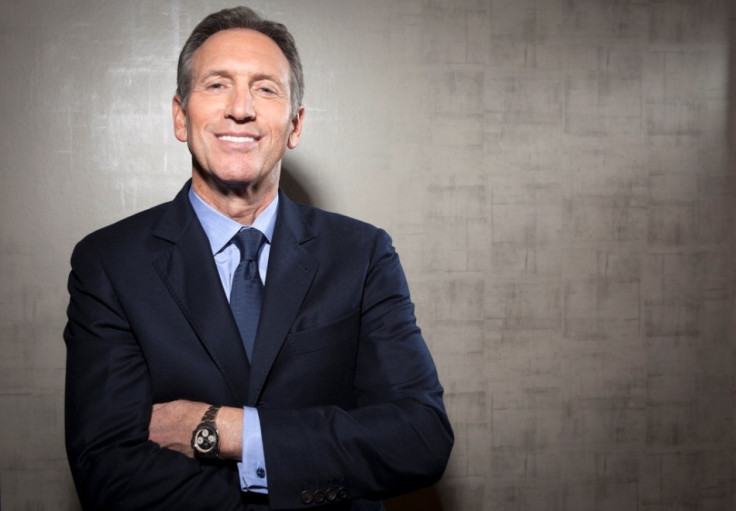Starbucks CEO Defends $2.76bn Kraft Split As Strategically Right Decision

Starbucks' chief executive Howard Schultz has defended his firm's move to sever ties with Kraft Foods in 2011, saying it was the "right strategic decision" despite a costly settlement payout to the foods company.
Schultz told analysts on a 13 November conference call that the 2011 decision would benefit the company and its shareholders in the long run.
Starbucks has agreed to pay Kraft $2.76bn (£1.72bn, €2.05bn) to settle a dispute about a grocery coffee contract.
Starbucks will issue $750m in additional debt over the next three months to assist with the payment, chief financial officer Troy Alstead told analysts on the call.
The settlement money will be paid to Mondelez International, from which Kraft Foods was spun off in 2012.
The date of the payment has not yet been finalised, Alstead added.
"It's difficult when a decision like this goes against you. But it is a one-time charge in a single moment in time, and now it's behind us," Schultz said on the call.
The move was "without question, the right strategic decision for Starbucks, our brand and our shareholders," Schultz added.
The damages incurred now force the world's largest coffee chain to restate its results for the fiscal fourth-quarter. The company will report an operating loss for the latest quarter, according to a 13 November regulatory filing.
Tax Bill Erased
However, on the bright side, the massive payout erases Starbucks' 2013 global tax bill of $832m, leaving the firm with a tax credit of $239m
Starbucks shares finished 1.05% higher at $81.46 in New York on 13 November, valuing the firm at $61.36bn.
Mondelez's shares finished 2.7% higher at $33.31 in New York on 13 November.
On 12 November, an independent US arbitrator ordered Starbucks to pay Kraft $2.76bn composed of $2.23bn in damages and $527m in interest and legal fees.
Kraft first began marketing Starbucks roast and ground coffee in 1998 and succeeded in building a business worth about $500m by 2010.
The deal providing Kraft with exclusive rights to sell Starbucks coffee in retail and grocery outlets was to run until March 2014, but the coffee major terminated the contract in March 2011, saying that Kraft had broken the terms of the agreement.
Subsequently, Kraft initiated arbitration proceedings to challenge the improper termination of the companies' contract.
© Copyright IBTimes 2025. All rights reserved.






















